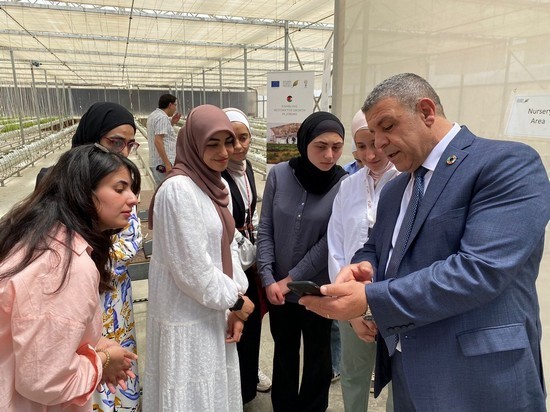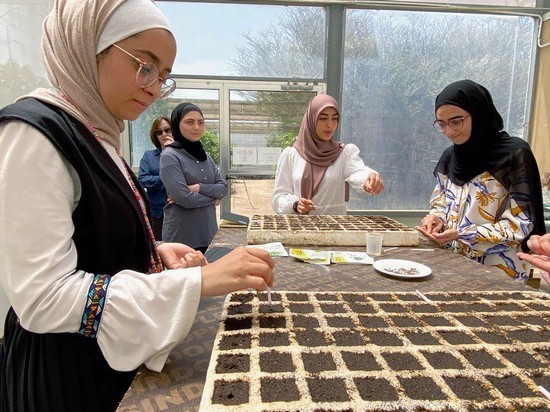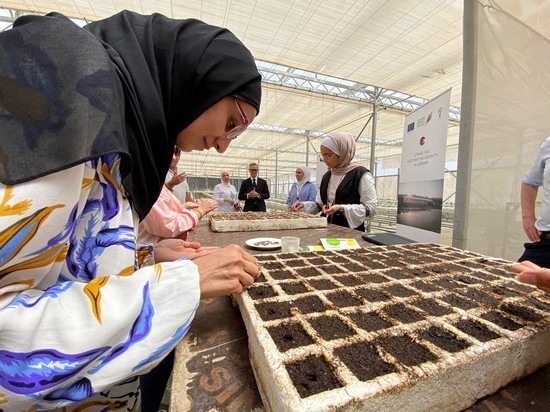AMMAN — Norway’s ambassador to Jordan,
Espen Lindbæck, accompanied by Jordan’s
Food and Agriculture Organization (FAO)
director, Nabil Assaf, visited the Sahara Forest Project (SFP) site in Aqaba on
Monday, to review the project’s latest developments and witness part of the
technical training provided to young Jordanian women, according to a press
statement.
اضافة اعلان
During the visit, guests toured the site where they
learned about the technology used to revegetate arid lands using seawater and
solar energy to produce vegetables. These efforts are part of the project’s
efforts to boost the Kingdom’s ability to achieve food security and demonstrate
a green economy solution.

Assaf emphasized
the importance of SPF as a project stating that “the desalinated seawater is
used in agriculture and at the same time increases the green cover in the
surrounding areas, and this is a very good thing. The challenge may be the cost
component, but the more we work to reduce the cost, the more successful the project
will undoubtedly increase.”
“From here, we invite banks and the private sector
to pay attention to this issue and we are ready to provide them with all
relevant information and studies in cooperation with the
Ministry of Environment, the Ministry of Agriculture, and the Ministry of Water and
Irrigation as major partners in preserving water and the environment for a
better tomorrow for future generations,” he added.
For the technical training, the guests were able to
see the third cohort of young Jordanian women who received their second
practical training on agricultural technologies as part of “She Grows” program
directly on site. The program is being implemented in cooperation with
Al-Hussein Technical University (HTU).

“She Grows is a great example of institutional
cooperation that puts skills training on sustainable agriculture and women’s
participation at the center. Sahara Forest Project is doing an excellent job in
advancing this agenda together with HTU,” said Lindbæck.
She Grows is one of the strategic pillars of SFP and
resembles its social impact arm aiming to enhance women participation in the
agriculture sector.
The program was established on the sidelines of the
Norwegian Royal visit to Amman in 2020. The 300-hour program aims to develop the
skills and competencies of young Jordanian graduates interested in working in
innovative and sustainable agritech and food production in response to Jordan’s
water, energy, and climate action priorities. The training covers technical
skills, soft skills, and English language.

SFP is a unique example of
Jordanian-Norwegian
partnership that has been operating in Aqaba, Jordan since 2017 following a
royal inauguration, and is now at a stage to upscale to commercial levels of
production, pending a seawater pipeline which was tendered by Aqaba Development
Corporation late last year.
Read more Business
Jordan News



